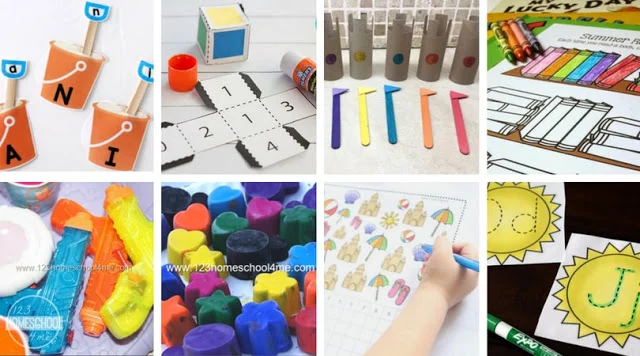Introduction
In today’s fast-paced world, finding ways to make learning enjoyable for kids is crucial. DIY learning projects offer an exciting opportunity to combine education with fun. These projects not only stimulate children’s creativity but also enhance their problem-solving skills and boost their confidence. By engaging in hands-on activities, kids can explore different subjects in a more interactive and personalized way. Let’s delve into the benefits of DIY learning projects for kids and explore some creative ideas to get started.
The Benefits of DIY Learning Projects
DIY learning projects offer a myriad of benefits for children. One of the key advantages is that they promote hands-on learning, allowing kids to actively engage with the material instead of passively absorbing information. This hands-on approach helps improve retention and understanding as children can see the results of their efforts in real-time.
Furthermore, DIY projects encourage critical thinking and problem-solving skills. When faced with challenges during a project, children learn to think creatively and come up with innovative solutions. This not only boosts their intellectual abilities but also instills a sense of resilience and perseverance.
Engaging in DIY learning projects also fosters a sense of independence and self-reliance in children. As they work on projects independently or in groups, kids learn to follow instructions, manage their time effectively, and take ownership of their work. This sense of accomplishment can significantly boost their self-esteem and motivation to learn.
Moreover, DIY projects provide a platform for interdisciplinary learning. Children can explore various subjects such as science, technology, engineering, art, and math (STEAM) through hands-on projects. This holistic approach to learning helps kids make connections between different disciplines and develop a well-rounded understanding of the world around them.
Creative DIY Learning Project Ideas
- Science Experiments: Conducting simple science experiments at home is a great way to pique children’s curiosity and teach them fundamental scientific concepts. From making a volcano erupt with baking soda and vinegar to creating a rainbow in a jar, there are endless possibilities for fun and educational science projects.
- Gardening: Starting a small garden teaches kids about plant life cycles, the importance of environmental conservation, and the basics of botany. Children can learn to plant seeds, nurture plants, and observe the changes that occur over time, fostering a deeper connection with nature.
- Coding and Robotics: Introducing kids to the world of coding and robotics through DIY kits and online resources can help them develop valuable skills in programming and problem-solving. Building and programming a simple robot or creating a basic computer game can be both educational and entertaining.
- Arts and Crafts: Engaging in arts and crafts projects allows kids to explore their creative side while honing their fine motor skills and visual-spatial abilities. From painting and drawing to sculpting and origami, there are countless ways for children to express themselves artistically through DIY projects.
- DIY Musical Instruments: Encourage children to create their own musical instruments using everyday materials such as cardboard tubes, rubber bands, and empty containers. This hands-on activity not only promotes creativity but also introduces kids to basic concepts of sound and music.
- Cooking and Baking: Involving kids in cooking and baking activities can teach them essential life skills such as following recipes, measuring ingredients, and understanding the science behind cooking. Kids can explore different cuisines, experiment with flavors, and develop a love for culinary arts through DIY kitchen projects.







